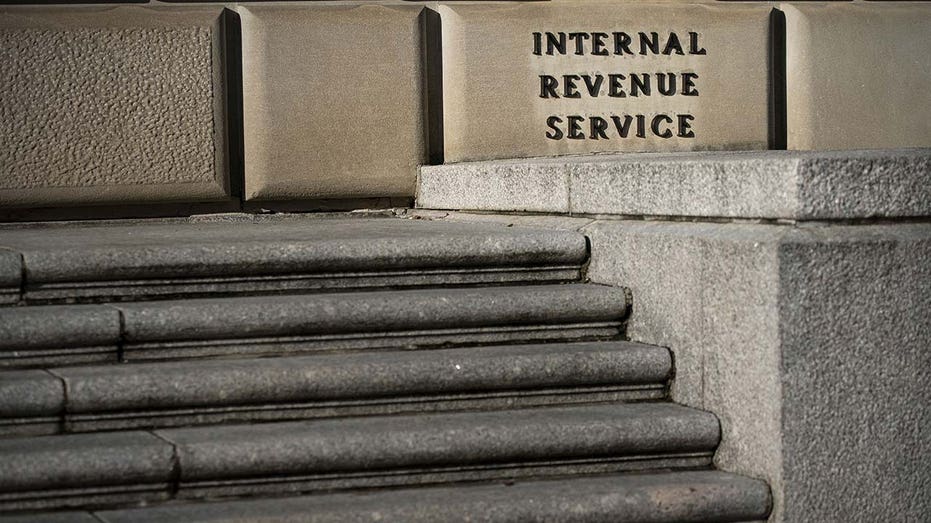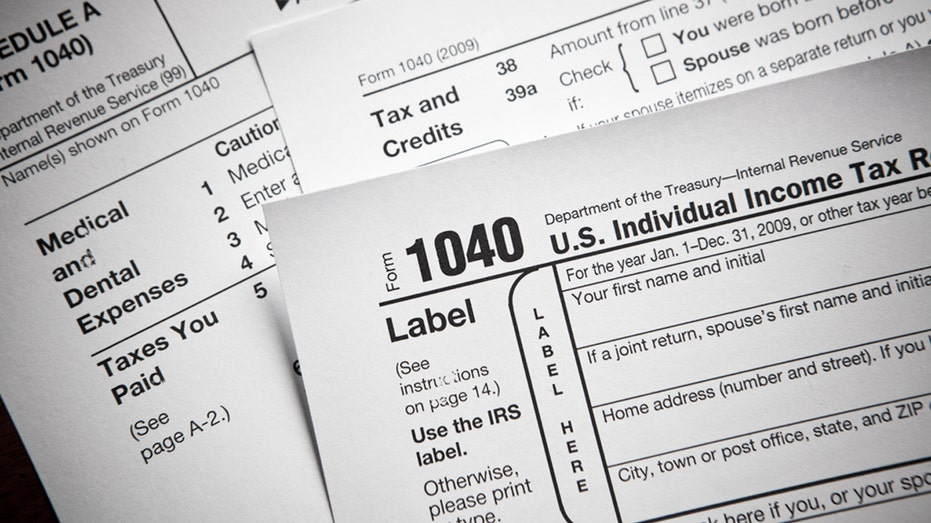Millions of unemployed Americans could be in store for surprise tax bill
Unemployment benefits are taxed at the federal level and by most states
Taxes made easy for newlyweds and new parents
Sponsor Content: Tax advice for recently married couples and new parents filing in 2022
Millions of out-of-work Americans who collected unemployment benefits as a result of the COVID-19 pandemic could face an unpleasant surprise when they file their taxes this year.
That's because unemployment benefits, including the extra money distributed through federal aid programs, count as taxable income.
THESE STATES ROLLED BACK THEIR GASOLINE TAXES. OTHERS COULD FOLLOW
Unemployment benefits vary by state, but the $1.9 trillion American Rescue Plan that Democrats signed into law last March sweetened the aid, giving beneficiaries an additional $300 per week through the beginning of September. The average laid-off worker was receiving about $630 per week in benefits before the boosted aid expired on Sept. 6, 2021.

Faustino (R), who is currently unemployed, waits in a socially distanced line to enter a bookkeeping shop near the U.S.-Mexico border in Imperial County, which has been hard-hit by the COVID-19 pandemic, on July 24, 2020 in Calexico, California. (Photo by Mario Tama/Getty Images / Getty Images)
Congress also passed a $900 billion coronavirus relief package at the end of December 2020 that extended jobless aid by $300 a week through mid-March.
In addition to providing workers with an extra $300 a week on top of their regular state benefits, the programs offered aid to workers who were not typically eligible and extended state unemployment benefits once they had been exhausted.
But many Americans who received the benefits may be unaware that the money was taxable – or that taxes from the aid are not automatically withheld – setting them up for a refund shock when they file their taxes.

The Internal Revenue Service (IRS) headquarters in Washington, D.C., U.S., on Friday, Feb. 25, 2022. (Photographer: Al Drago/Bloomberg via Getty Images / Getty Images)
Even more confusing for jobless aid recipients is that last year, Congress waived federal income taxes on up to $10,200 in 2020 unemployment insurance benefits for individuals who earn less than $150,000 a year. The break will not apply to this year's tax-filing season, which began Jan. 24 and will end on April 18.
The benefits are taxable at the federal level and by most states (California, New Jersey, Oregon, Pennsylvania and Virginia are the only ones to completely exempt it), meaning recipients could wind up with a tax bill this year, even though they lost their job. You do not have to pay Social Security and Medicare taxes on your unemployment benefits.
The total amount of income you receive and your filing status will determine whether you need to file a tax return.
There are roughly 25 million Americans who received jobless aid last year, according to data from the left-leaning Century Foundation.

Income tax numbers at the accountants office
To avoid an unexpected tax hit next year, recipients had two options:
Have taxes withheld:
When you first receive benefits, your state government will provide you with an IRS Form 1099-G. You can choose to have income taxes withheld from your compensation at this time (the total federal tax withheld will appear in Box 4, and the state tax withheld will appear in Box 110).
If you are already receiving the payments and want the government to automatically take your tax obligation from the money before you receive it, as it does with a typical paycheck, then you need to file Form W-4V. This informs the payer (the state government) to withhold 10% from your check for federal income tax.
Make quarterly payments to the IRS:
If you’d rather not have your taxes withheld by the government, you can opt to make the estimated payment every quarter.
CLICK HERE TO READ MORE ON FOX BUSINESS
To do so, beneficiaries will have to calculate their obligation and meet payment deadlines every three months. Undershooting how much you owe or missing a deadline could result in a penalty charge.





















